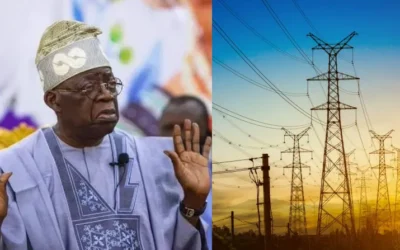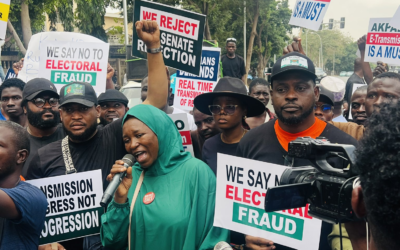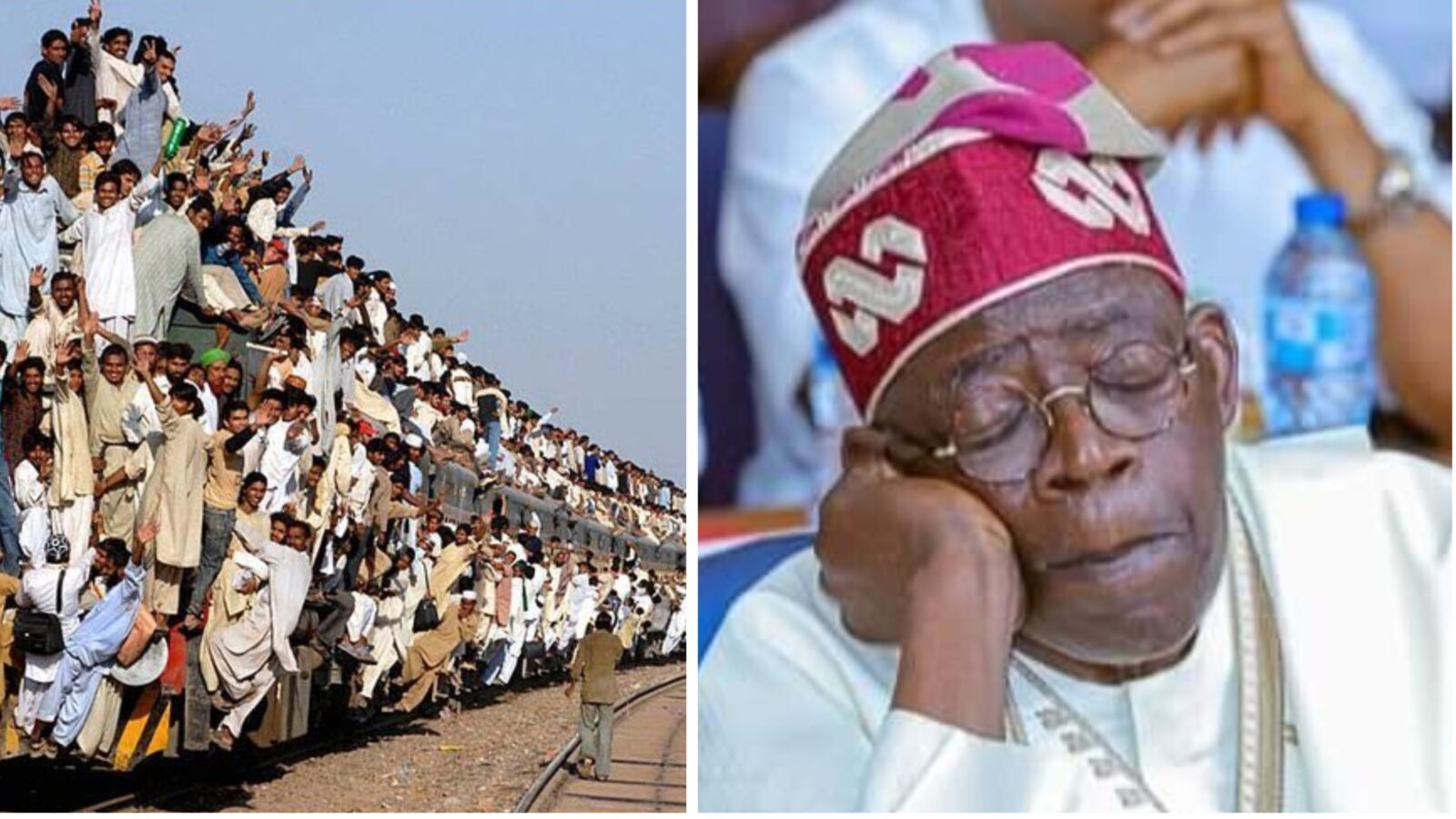
Nnamdi Kanu’s Transfer To Sokoto Prison Threatens Ability To File Appeal, Says IPOB Leader’s Ex-Counsel, Ejimakor

Barrister Aloy Ejimakor, former Special Counsel to the leader of the Indigenous People of Biafra (IPOB), Nnamdi Kanu, has raised concerns that transferring Kanu to a correctional facility in Sokoto, hundreds of kilometres from Abuja, poses a serious threat to his right and ability to file and pursue an appeal in his case.
Speaking on Channels Television’s Morning Brief programme on Monday, Ejimakor warned that Kanu’s constitutional rights under Section 36 of the 1999 Constitution of the Federal Republic of Nigeria were now at risk.
“Right now, what everybody should be concerned about is the post-judgment regime. Mazi Nnamdi Kanu still retains his constitutional right to a fair hearing under Section 36 of the Constitution,” he said.
Ejimakor, who served as Kanu’s Special Counsel until the IPOB leader opted to retain him only as a legal consultant, stressed that the appeal process requires immediate and detailed actions that are impossible to execute without close access to the relevant courts and legal support.
“That constitutional right is going to be expressed before the Court of Appeal, or perhaps there could be post-judgment maneuvers that could be made before the High Court.
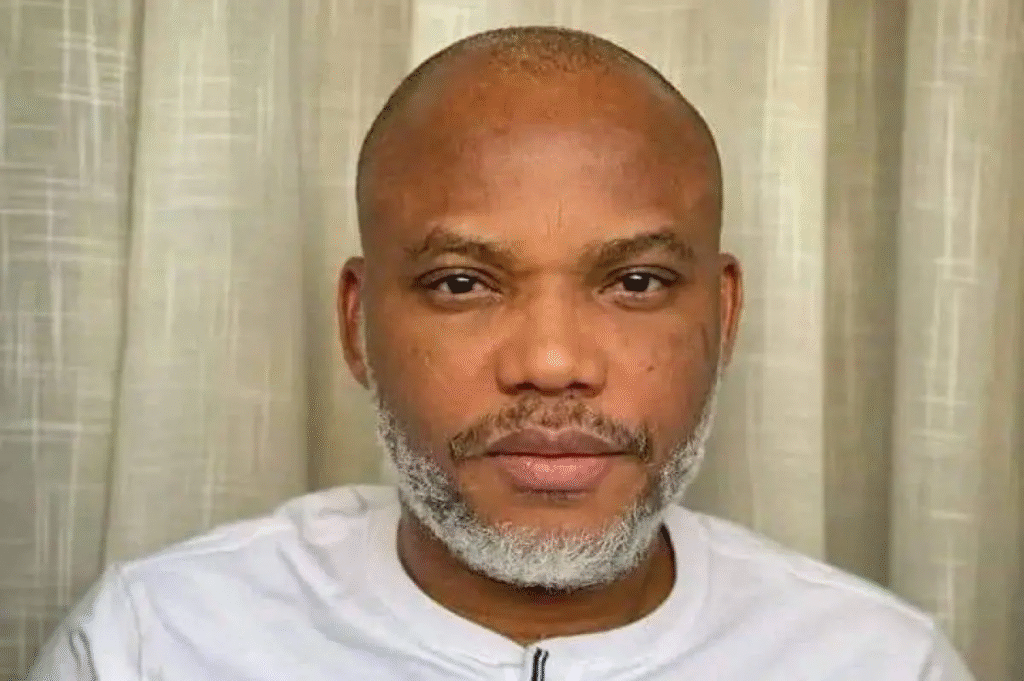
“But for now, it is well known to the whole world and to the High Court, and to everybody else who is a stakeholder in this case that Nnamdi Kanu has no legal counsel. As I speak, he still represents himself,” he noted.
Ejimakor said the legal community and observers were stunned to learn that Kanu was moved from Abuja to a prison in Sokoto shortly after his sentencing.
“After the sentencing, I was surprised, and I think everybody else who was monitoring this case was surprised that Nnamdi Kanu was plucked from Abuja and taken all the way to Sokoto, which is in the most northern part of Nigeria,” he said.

He questioned how Kanu could meet the strict procedural demands required to initiate an appeal.
Ejimakor said, “One begins to ask, how can he effectively prosecute his appeal or even take the initial steps towards initiating his appeal. Initiating an appeal is not an easy thing to do.
“He has to file a notice of appeal, request for the transcript of the records of the proceedings before the High Court, pay for them, review them and do all sorts of activities that will play out before the Court of Appeal.
“These things require his personal physical presence to get these things accomplished, unless he hires a lawyer, and up to this point, he hasn’t indicated that he is going to hire any lawyer or he has not made known to anybody that he has hired any lawyer.”
READ ALSO: Kanu: Heavy Security Around Abia Government House
He added that the Sokoto division of the Court of Appeal has no jurisdiction over Kanu’s case.
“You wonder whether he will be able to prosecute this appeal from his prison location in Sokoto. The Sokoto division of the Court of Appeal doesn’t have jurisdiction over this case. It is the Abuja division.”
Ejimakor clarified that the trial judge did not order Kanu’s incarceration in Sokoto.
He said, “So, putting him in Sokoto, I know it is not the fault of the judge; it is the fault of the executive branch. When someone is sentenced, they become the property of the executive branch, in particular, the correctional service.
“That decision of putting him in Sokoto, perhaps, did not take into account this concern I’m expressing. It is very insensitive to his rights. A prisoner still has rights.
“That you are in prison doesn’t mean you have lost your rights under Chapter 4 of the Nigerian Constitution, your fundamental rights in particular, Section 36, which is what is relevant now.
“Can Nnamdi Kanu effectively prosecute his appeal or even initiate it from that location in Sokoto? The answer is no.
“The judge did not particularly order that he be detained in Sokoto. There was only one prison in Nigeria that was excluded, which was Kuje Prison.”
He argued that several facilities closer to Abuja, such as Suleja and Keffi, would have better preserved Kanu’s access to legal assistance and family members.
“If you check around the Abuja area and the environs, there are other prisons. We have one in Suleja, one in Keffi, and there are probably other prisons within two hours from Abuja,” he said.
“Those prisons would have been much better locations for detaining Mazi Nnamdi Kanu to ensure that he is close enough to his relatives, who are known to be in Abuja.
“His legal consultants, if he still wants to deploy their services, are also close to the Court of Appeal in Abuja, which has jurisdiction over this matter,” Ejimakor added.
Ejimakor said efforts may soon be made to challenge or alter the conditions of Kanu’s detention.
“What may play out in the coming days or weeks is to seek ways and means of ameliorating the detention conditions,” he noted.
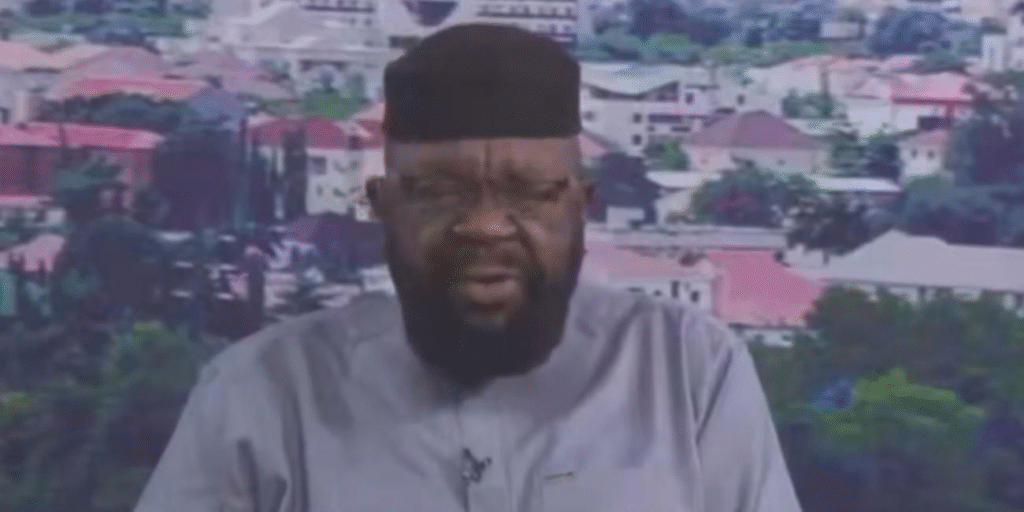
He warned that Kanu’s ability to pursue an appeal is now being complicated by the current location of his imprisonment.
“We are looking at the situation where his right to appeal is being complicated by the current location of his imprisonment,” he said.
Kanu was convicted on seven terrorism-related counts on Thursday, November 20, 2025, by Justice James Omotosho of the Federal High Court in Abuja after years of trial disruptions, detention, and legal disputes between his defence team and the Nigerian authorities.





